Top Bottled Water Brands: The Good, Bad, and the Ugly
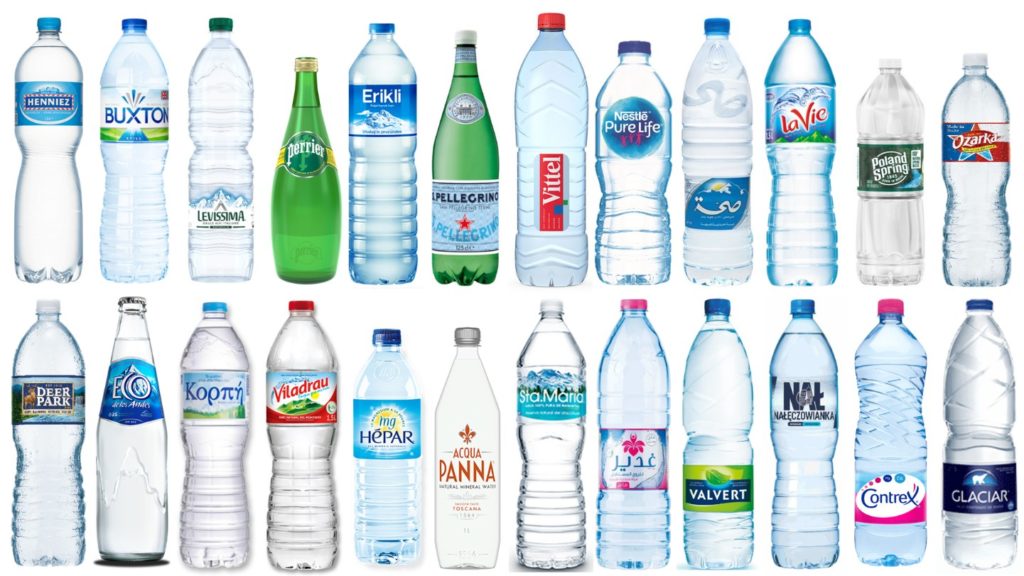
Some of the top bottled water brands in 2020 could be hiding something. Whether it be bad consumer practices or poor quality water, here’s what you need to know.
Have you ever purchased bottled water and, upon opening it, felt it tasted like, well, something you shouldn’t have had to pay good money to drink? Maybe next time you should spring for one of the top bottled water brands instead?
You thought you were getting top-rated water when you probably would have done better just to drink water from your kitchen sink.
Wait, though. What if the water you drank were one of the top bottled water brands?
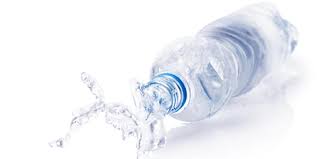
In this article, we’ll help you navigate the complex and sometimes deceptive world of bottled water so that, hopefully, you’ll be a wiser consumer
Is Bottled Water Worth It?
The quick answer: usually. maybe. If it’s the right brand, yes.
When it comes to bottled water, brand names can be deceptive, especially those that are well known. In some cases, much of bottled water’s taste comes from the plastic bottle and isn’t very pleasant.
In other cases, you might find out that the source of your bottled water is a municipal water supply somewhere (one prominent brand uses New York City water as its source). Why pay for that?
If you must drink bottled water, make sure it’s the best bottled water you can get. You might need to do a little research on this topic first, and this article is a place to start.
We’ll give you information about selecting bottled drinking water. We’ll also recommend some brands we like. Yes, some bottled water brands do taste good, have virtually no contaminants, and probably are worth paying for.
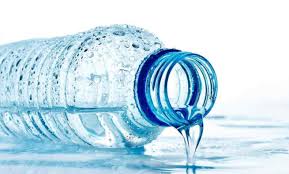

What to Know When Selecting Bottled Water
Sometimes, you’re simply handed a bottle of water as an event freebie, or it comes with a packaged meal. If you’re in a store looking for bottled water, though, you have some choices.
The following are questions (with answers) to consider when making your bottled water selection.
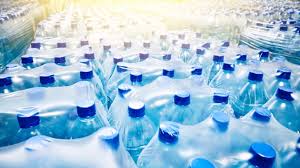

What Are the Different Categories of Bottled Water?
Different categories of bottled drinking water usually represent different sources or purification methods. In some cases, there are additives as well.
Spring Water
Spring water is sourced from underground springs. However, because its source is a natural spring, this doesn’t mean the water is pure and free of contaminants. In fact, like water from any source, to be safe for drinking or cooking, spring water needs to be filtered or distilled.
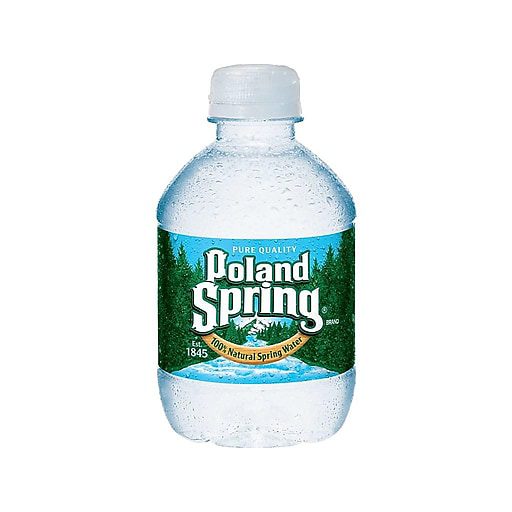

Filtered (Purified) Water
This is water that has gone through enough filtration—often involving more than one type of filter—until it tests free (or at an extremely low level) of contaminants. You can either use a home water filter or buy your water in bottles, already filtered.
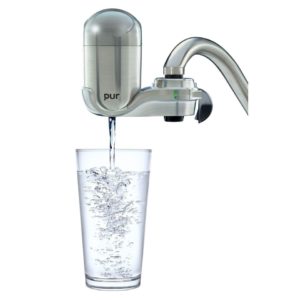

Distilled Water
Distilled water is the condensed steam of water that’s been heated to a boil. It’s collected in a container separate from the one in which the water was boiled.
Even though people are advised to boil water when the water supply has been contaminated, boiling is not the equivalent to distillation for water purification.
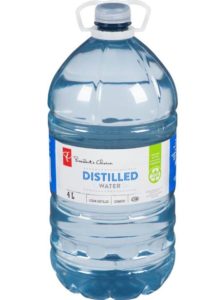

Why Contaminants in Drinking Water Matter
Water contaminants encompass a broad range of substances, including heavy metals, chemicals and other toxic substances, microorganisms, and sediments carried by the water. Most of these are not harmful in small quantities. A few are.
If quantities aren’t monitored carefully, contaminants can get out of control. A good purification process that uses multiple methods, disinfecting agents, and filter types can do a lot to prevent or change this situation.
If these remedies aren’t used—or at least not to the extent they should be—the water supply could be rendered unsafe.
If impure water is bottled and sold by businesses, it probably will result in a lot of sick people.
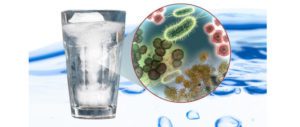

Why the pH of Drinking Water Matters
A site listing the “absolute worst bottled water” brands uses pH testing (along with the amount of plastic in the bottle) to determine its rankings. What it lists as the ten worst brands have pH levels between 4.0 and 6.0 (relatively acidic pH levels).
The EPA has recommended that municipal drinking water be maintained at a pH between 6.5 and 8.5. One reason for this is that acidic water can be a sign of contaminants and might corrode metal pipes.
The bottled water brands the site mentioned above sees as the best have a pH level in the range from 7.0 to 9.0—meaning the water is between neutral and alkaline. A pH over seven is sometimes touted as good for hydration and quenching thirst.
However, there’s no evidence that drinking water that’s slightly alkaline has health benefits other than, perhaps, for those with acid reflux disease (GERD), high blood pressure, diabetes, or high cholesterol.
If you test the pH of your home drinking water and get a reading outside the safe range, you should contact your water company to alert them to this test result.
Our Picks for the Top Bottled Water Brands
Sadly, some of the top bottled water brands you may have bought in the past—maybe even still use today—could actually be among the worst bottled water on the market. They probably shouldn’t be on the market at all.
Still, a lot of bottled water brands maintain high standards. Below are some drinking water brands we consider the best bottled water to drink based on several different reviews and supporting sources.
Fiji
Fiji water, sourced in Fiji, is generally considered the best. It meets FDA standards, has a pH of 7.5, is bottled at its named source, and is the second most popular imported bottled water brand and the best premium bottled water brand in the United States.
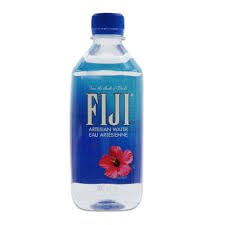

Evian
This brand with a pH of 7 (neutral) is spring water—from a protected source that “lies at the very foot of the French Alps, far from any urban or industrial development.” It’s quality-tested at two stages, popular, and has a clean taste.
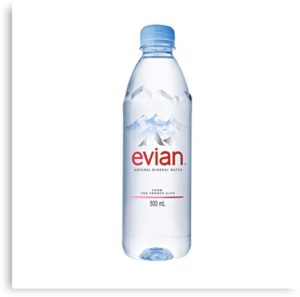

Nestlé Pure Life Drinking Water
Most water contaminants, chemicals, and other impurities for which this Swiss purified water brand was tested were non-detectable. It’s cleaned and tested under strict conditions and considered safe to drink.


Zephyrhills
This bottled water brand from Florida had virtually no contaminants when tested. It’s 100% natural spring water that’s been described as one of the “best on the market.”
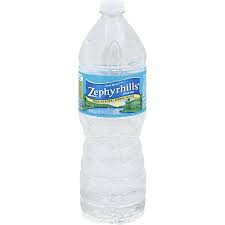

Deer Park
This popular and lower-priced bottled water brand is sold in individual bottles and purchased in quantity for institutional use, offices, and events. People seem to like its taste, and it is only slightly acidic at 6.3. Deer park is sourced and bottled in multiple locations.
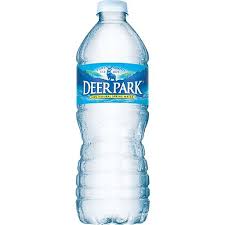

Crystal Geyser Alpine Spring Water
This inexpensive bottled water is sourced and bottled at several different mountain locations throughout the U.S. It’s a major supplier to public events. Crystal Geyser has a mildly acidic pH of 6.0. It is virtually free of contaminants, and tasters generally liked its flavor.
Our list of the best brands of bottled water is not exhaustive. There are other good brands available. Be sure to do your research before selecting a brand, though.
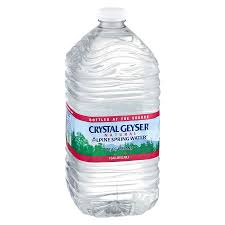

Alternatives to Bottled Drinking Water
In some places, such as many larger cities or those with known contamination of the public water supply, there are very few ways to avoid drinking bottled water. In many other places, though, it can be avoided. Here are some ways to avoid bottled water.
Drink Tap Water
If you happen to live someplace with a good, well-maintained local water supply, you will do well just to turn on the kitchen tap and fill a reusable bottle. As long as your municipal water is clean, water from your sink would be fresh and not taste like plastic.
Use a Water Purification System
There are many ways to filter your water at home. Those with concerns about the public water supply or their home well water often do this.
Most home filtration systems use carbon filters made with activated charcoal. Some use these in combination with clay filters, which remove different types of impurities.
Some home water filtration systems use the reverse osmosis process, wherein the tiny water molecules are squeezed through a semi-permeable membrane, leaving the larger impurity molecules behind.
Use Purified Water Dispensers and Reusable Containers
Until purified water dispensers are more widely available in workplaces and public spaces, you should carry your reusable drinking water container. You can use several materials in place of plastic bottles. These include:
- Glass—fragile, but also long-lasting and recyclable
- Ceramic—also fragile, but a good, natural insulating material
- Stainless steel—durable and recyclable
- Plant-based plastics—biodegradable and, if you wish, edible
- Paper containers—convenient and recyclable
Another way to avoid throwing away “disposable” plastic bottles is simply reusing them. As we know, they’re durable and will last a very long time. Just don’t accumulate a lot of them to put in landfills at a later time!
How Do You Like Your Water?
Will you switch your bottled water preference to one from our list of top bottled water brands? Will you consider one of our bottled water alternatives? Perhaps you will become an advocate for more water dispensers in convenient locations?
Along with being responsible users of water containers, we need to recognize that not all bottled water quality is the same. Even though most water looks the same when it’s in bottles, some can be filled with contaminants such as chemicals or microscopic organisms, while others are very pure.
If you would like to know more about our office water services, the water quality, pricing, delivery, or anything else, just let us know.

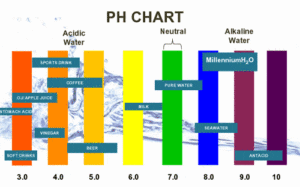

Leave a Reply